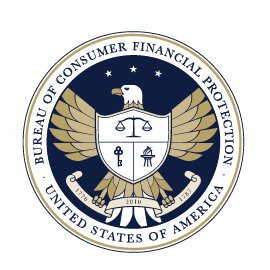On June 28, the U.S. Supreme Court granted a Petition for a Writ of Certiorari in Obduskey v. McCarthy & Holthus LLP that presents the question “whether the FDCPA applies to non-judicial foreclosure proceedings.” The borrower in the underlying case defaulted on his home loan and the mortgage servicer hired a law firm to pursue a non-judicial foreclosure. The borrower informed the law firm he was disputing the debt and the law firm, without responding to the dispute, proceeded with the non-judicial foreclosure. The borrower then filed a lawsuit against the mortgage servicer and law firm alleging, among other things,…
On June 28, California passed into law the California Consumer Privacy Act of 2018, which becomes operative on Jan. 1, 2020. As with the EU’s General Data Protection Regulation, the Privacy Act gives consumers greater control over the use and sharing of their personal information. The Privacy Act allows a consumer to request that a business disclose: the categories and specific pieces of personal information that it collects about the consumer; the categories of sources from which that information is collected; the business purposes for collecting or selling the information; the categories of third parties with which the information is…
Following the D.C. Circuit’s ruling in ACA Int’l v. FCC, the U.S. Court of Appeals for the Third Circuit recently held that an “automatic telephone dialing system” under the federal Telephone Consumer Protection Act must have the present or current capacity to store or produce telephone numbers using a random or sequential number generator, and to dial those numbers. A copy of the opinion in Bill Dominguez v. Yahoo, Inc. is available at: Link to Opinion. The plaintiff purchased a cellphone with a reassigned telephone number. The prior owner of the number subscribed to an email service provider’s “Email SMS Service,”…
The U.S. Court of Appeals for the Third Circuit recently reversed the dismissal of a consumer’s complaint for unauthorized use of his credit card, holding that he stated claims for relief under the federal Fair Credit Billing Act’s correction of billing errors provisions, and the federal Truth in Lending Act’s unauthorized-use provisions. In so ruling, the Court held that: When “a creditor removes a disputed charge from a billing statement and later reinstates that charge, the 60-day period in which a consumer must file a written dispute begins when the consumer receives the first statement reinstating the charge.” “A cardholder…
In a follow-up to an advisory jury’s verdict, finding that a law firm’s pre-suit collection letters contained “false, deceptive, or misleading representations or means in connection with the collection of a debt” while rejecting a claim that the firm’s attorneys were not meaningfully involved in the debt collection process in violation of the FDCPA, the CFPB filed its proposed findings of fact and conclusions of law on June 15, suggesting that the jury’s verdict was misguided. Instead, the CFPB asserted that the applicable facts and law support a conclusion that attorneys with the law firm were in fact not “meaningfully…
Mass. SJC Holds Mass. Debt Collection Regs Apply to Creditors that Auto Dial or Don’t Leave Messages

The Massachusetts Supreme Judicial Court (SJC) recently held that Massachusetts debt collection regulations, which limit how often a creditor may attempt to contact a debtor via telephone in order to collect a debt, apply to creditors that use automatic dialing devices or voluntarily decide not to leave voicemail messages. A copy of the decision in Armata v. Target Corporation is available at: Link to Opinion. The plaintiff initiated a matter in Superior Court, alleging the defendant violated 940 Code Mass. Regs. § 7.04(1)(f), which provides that “[it] shall constitute an unfair or deceptive act or practice for a creditor to contact…
In a recently issued unpublished opinion, the U.S. Court of Appeals for the Fifth Circuit rejected the argument of the attorney defendant who owned a law firm and a debt-buying company that he was exempt under the federal Fair Debt Collection Practices Act (FDCPA) because he was a creditor “by proxy.” Specifically, the Fifth Circuit determined that the attorney, his law firm, and his debt-buying company were all distinct entities as a matter of law, such that his argument that he, as the owner of the debt-buying company, owned the debt and thus he did not qualify as a debt…
In the final few pages of a 108 page opinion of a motion to dismiss a complaint jointly filed by the Consumer Financial Protection Bureau (CFPB) and the Attorney General of the State of New York (NYAG), a Federal Judge sitting in the Southern District of New York declined to follow an earlier ruling from the Court of Appeals for the District of Columbia Circuit but instead adopted the dissent which held that “the CFPB is unconstitutionally structured because it is an independent agency that exercises substantial executive power and is headed by a single Director.” A copy of the…
The U.S. Court of Appeals for the Ninth Circuit recently held that a plaintiff did not allege Article III standing for her claim under the federal Fair Credit Reporting Act (FCRA) where there were no specific factual allegations plausibly tying the inclusion of her debit card expiration date on her receipt to her alleged identity theft. Moreover, the Court held, leave to amend would be futile because this action against the National Park Service was barred by sovereign immunity. Accordingly, the Ninth Circuit affirmed the ruling of the district court dismissing the complaint. A copy of the opinion in Daniel…
By Brent Yarborough and Eric Rosenkoetter On June 13, the Bureau of Consumer Financial Protection issued a consent order with a holding company and its affiliated operating entities engaged in consumer lending. The consent order reflects the parties’ settlement of an administrative enforcement action that focused on the lenders’ debt collection and credit reporting practices. The lenders neither admitted nor denied the Bureaus’ findings or conclusions, but as part of the settlement they are required, among other things, to pay a civil money penalty of $5 million and to refrain from making in-person visits for collection purposes. This is the second consent order…
The Supreme Court of the United States recently reversed a ruling of the U.S. Court of Appeals for the Ninth Circuit, and clarified that American Pipe & Constr. Co. v. Utah, 414 U.S. 538 (1974), does not toll a subsequent class action after the statute of limitations expires. A copy of the opinion in China Agritech, Inc. v. Resh is available at: Link to Opinion. As you may recall, American Pipe first stated the tolling rule that timely filing a class action “tolls the applicable statute of limitations for all persons encompassed by the class complaint.” Thus, under American Pipe, where a court…
The Supreme Court of Pennsylvania recently held that a borrower is not entitled to attorney’s fees under the Pennsylvania Loan Interest Law (“Act 6”) relating to an affirmative defense raised in a mortgage foreclosure action that was subsequently discontinued without prejudice. A copy of the opinion in Bayview Loan Servicing, LLC v. Lindsay is available at: Link to Opinion. The borrower defaulted on his mortgage loan, and the mortgagee filed a foreclosure action. Thereafter, the borrower answered the foreclosure complaint and asserted as an affirmative defense an alleged violation of § 403(a) of Act 6, which, according to the Court, is an “extensive…











